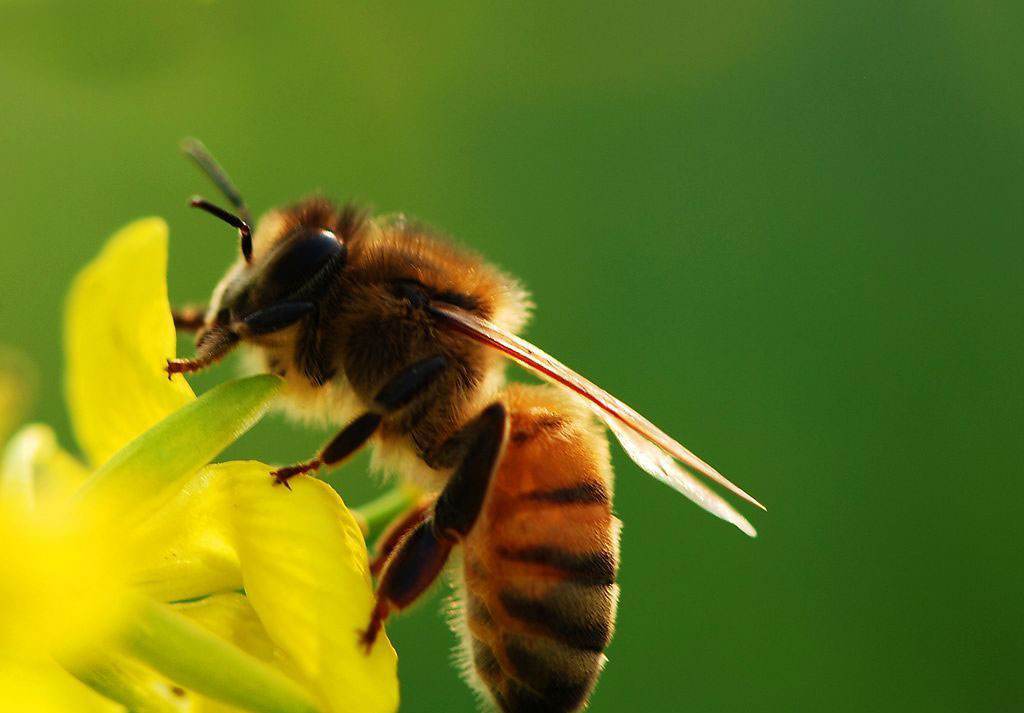Bees take on different jobs in a bee hive according to their age.
蜜蜂的年龄不同,在蜂群中的分工也不同。
Many become food scouts when older, but not all scouts are the same.
随着年龄增长,很多蜜蜂会成为“食物侦察兵”,但所有“侦察兵”的分工也不同。
Some search for new flowers, while others fly to and from established nectar sources.
一些去寻找新的花朵,其他的则往返于已确定的花蜜来源。
A team of scientists wondering if some bees might be natural risk takers decided to put that question to the test.
一组科学家好奇有的蜜蜂是否天生就是“冒险者,于是他们决定借实验寻找答案。

They placed a hive in an enclosure with a feeder of sugar water and marked each bee that visited the feeder.
他们把蜂巢移到一个栅栏中,栅栏周围放置了装有糖水的喂食器,他们将每个去过喂食器的蜜蜂都做上标记。
A few days later, they added second feeder and marked the bees that found that one.
几天后,科学家们又安置了第二个喂食器,并将飞到此处的蜜蜂做了标记。
Challenging the bees again, they moved the second feeder to a new location and marked the bees that discovered that location too.
为了再次测试蜜蜂,他们将第二个喂食器重新换了位置,再将发现新位置的蜜蜂做了记号。
Bees that found new feeders both times were called scouts, while bees that only gathered nectar at the old feeder were called non scouts.
两次发现新喂食器的名为“寻蜜蜂”,而只在原先喂食器内采蜜的蜜蜂名为“保育蜂”。
译文为可可英语翻译,未经授权请勿转载!












